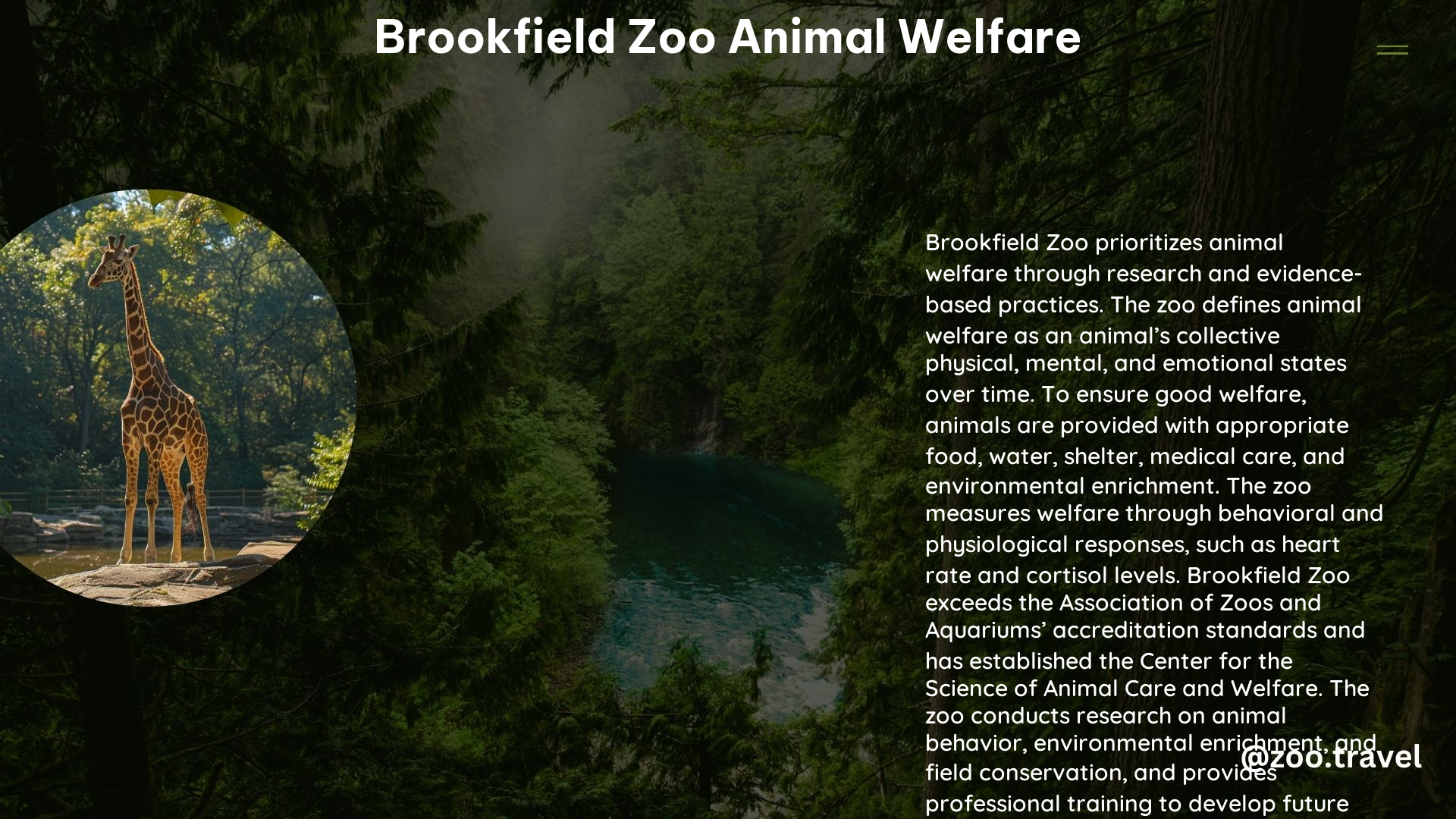Brookfield Zoo, located in Brookfield, Illinois, is renowned for its dedication to promoting positive animal welfare through its comprehensive Animal Welfare Research Program. As a leading zoological institution, Brookfield Zoo is committed to inspiring conservation leadership by connecting people with wildlife and nature, and a crucial aspect of this mission is ensuring the well-being of the animals in its care.
Brookfield Zoo’s Animal Welfare Research Team
At the heart of Brookfield Zoo’s animal welfare initiatives is a team of expert researchers and scientists:
- Lance J. Miller, Ph.D.: Vice President of Conservation Science and Animal Welfare Research, with extensive experience from Disney’s Animal Kingdom and the San Diego Zoo Institute for Conservation Research.
- Jessica Whitham, Ph.D.: Animal Welfare Biologist, specializing in behavioral studies and physiological stress responses.
- Charles Ritzler, Ph.D.: Animal Welfare Scientist, focusing on innovative zoo habitat design techniques and their impact on animal welfare.
- Maggie Ramont, MSc: Behavioral Research Assistant, with experience in animal behavior and welfare research from the Minnesota Zoo and Lincoln Park Zoo.
Defining and Measuring Animal Welfare

Brookfield Zoo defines animal welfare as the collective physical, mental, and emotional states of an animal over time. To assess and monitor animal welfare, the zoo’s research team employs a comprehensive approach that combines the observation of species-appropriate behaviors with the tracking of physiological responses, such as heart rate, blood pressure, and adrenal hormone levels.
Brookfield Zoo’s Animal Welfare Research Vision
The Animal Welfare Research Program at Brookfield Zoo has a clear and ambitious vision:
- Develop innovative tools to evaluate and promote positive animal welfare.
- Integrate research findings into animal care practices.
- Train future leaders in animal welfare.
- Communicate research results to diverse audiences.
- Foster collaborations with zoological and academic institutions.
Key Research Focus Areas
Brookfield Zoo’s animal welfare research covers several critical areas:
- Behavioral Diversity: Examining how behavioral diversity varies with other indicators of animal welfare.
- Environmental Enrichment: Optimizing environmental enrichment to meet the behavioral needs of each species.
- Bottlenose Dolphins: Conducting research to ensure the welfare of bottlenose dolphins, including the Cetacean Welfare Study.
- Ambassador Animals: Evaluating the impact of ambassador animal programs on animal welfare.
- Field Conservation: Developing methods to benefit field conservation efforts.
Addressing the Ethics of Animal Captivity
Brookfield Zoo recognizes the ethical concerns surrounding animal captivity and addresses these issues by ensuring that its exhibits provide a high-quality environment that closely matches the animals’ natural habitats. The zoo’s emphasis on animal welfare research is crucial in designing habitats that cater to the specific needs of each species.
Training and Collaboration
Brookfield Zoo is committed to developing a national and international training program on animal welfare and evidence-based management, providing professional training to cultivate local, national, and international scientists. The zoo also hosts scientific conferences to maintain its position as a leader in the field of animal welfare.
Visitor Information
Brookfield Zoo is open 365 days a year, with varying hours depending on the season:
- April 1 to September 30: 9:30 AM to 6:00 PM
- October 1 to March 31: 9:30 AM to 5:00 PM
Admission prices are as follows:
- Adults (12-64): $24.85
- Seniors (65+): $19.85
- Children (3-11): $17.85
- Children under 3: Free
By prioritizing animal welfare, Brookfield Zoo sets a high standard for zoological institutions worldwide. Through its comprehensive research program, innovative habitat design, and commitment to training and collaboration, the zoo continues to be a leader in the field of animal welfare, inspiring conservation efforts and fostering a deeper connection between people and the natural world.
